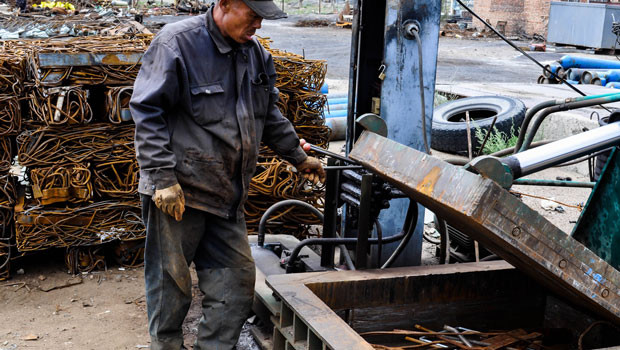China factory growth struggles amid Covid surge

China’s manufacturing sector stalled in January, data showed on Monday, hit by a resurgence in Covid-19 cases and the re-introduction of stringent lockdown measures.
According to the National Bureau of Statistics, the official Manufacturing Purchasing Manager’s Index for January was 50.1, down on December’s 50.3 although it was marginally ahead of consensus, for 50.0.
A reading above 50 indicates growth, while a reading below indicates contraction.
Output grew the least in three months, at 50.9 compared to 51.4 in December, and there were further declines for new orders, easing to 49.3 from 49.7. Input cost and selling prices both jumped.
The NBS’s non-manufacturing PMI, meanwhile, was also lower, falling to 51.1 from 52.7 in December.
A separate private sector survey also released on Monday, the closely-watched Caixin Markit Manufacturing Purchasing Managers’ Index, mirrored the declines.
It showed that China’s factory activity had contracted at the sharpest rate for 23 months in January, at 49.1 from 50.9 a month previously. Analysts had expected a reading closer to 50.0.
Wang Zhe, senior economist at Caixin Insight Group, said: "From December to January, the resurgence of Covid-19 in several regions forced local governments to tighten epidemic control measures, which restricted production, transportation and sales of manufactured goods.
"It became more evident that China’s economy is straining under the triple pressures of contracting demand, supply shocks and weakening expectations."
Craig Botham, chief China+ economist at Pantheon Macroeconomics, said: "A spike in Covid cases is the primary driver of the slowdown in January, along with factory closures head of the Lunar New Year holiday, and a smattering of production limits to limit air pollution during the Winter Olympics, though we had expected to see a larger fall in the official surveys.
"The Caixin reading was the weakest since February 2020, and if we exclude the pandemic, we have to reach back to the start of 2019 to find a worse number. The fall in the output subcomponent was sharper still, along with new orders, both foreign and domestic. Indeed, it is hard to find any good news in this month’s reading, beyond an increase in the future output index, suggesting a continued vote of confidence in government policy."
Mitul Kotecha, chief emerging market Asia and Europe strategist at TD Securities, said: "The NBS manufacturing PMI breakdown revealed declines in most components, and the re-emergence of price pressures. Services grew at its slowest pace in five months, with the increase in Covid cases in many provinces hurting travel and consumer services.
"Sentiment among both manufacturers and services is unlikely to get back to pre-Covid levels anytime soon."